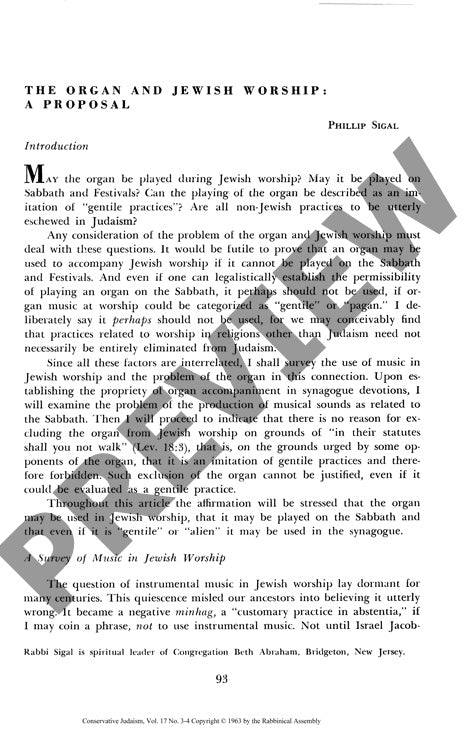The Organ and Jewish Worship a Proposal
Couldn't load pickup availability
Jewish liturgical music once resonated with instrumental accompaniment, from Biblical times through the Second Temple period - a tradition abruptly halted after 70 C.E. Yet the question of reintegrating organ music into synagogue worship remains contentious, particularly regarding Sabbath observance and concerns over Christian influence. Through analysis of Biblical and Talmudic texts, medieval commentaries, and rabbinic responsa, this research addresses the halakhic permissibility of organ accompaniment in contemporary Jewish services. The investigation reveals that nineteenth-century rabbinic opposition to organs lacked substantial halakhic basis, especially given that similar restrictions on choral singing and vernacular hymns have since been accepted. Examination of primary sources demonstrates that organ playing constitutes makhshir mitzvah, thereby superseding Sabbath prohibitions much like Temple-era practices. Furthermore, the research establishes that organ use does not violate Leviticus 18:3's prohibition against gentile practices, as instrumental music has clear Biblical precedent in Jewish worship and is not exclusively Christian. Just as vocal music returned to synagogue worship post-70 C.E., instrumental accompaniment merits restoration, enhancing devotional experience while maintaining continuity with ancient Jewish musical traditions. These findings support both the permissibility and recommendation of organ accompaniment in modern Jewish worship, contributing to the development of viable contemporary halakhah.

More Information
-
Physical Description
-
Publication Information
Published 1963
ISBN
-
Publication Credits
Phillip Sigal

